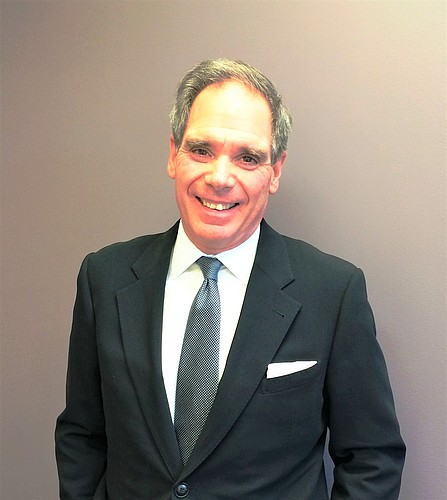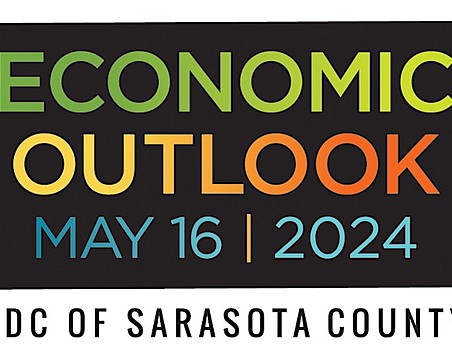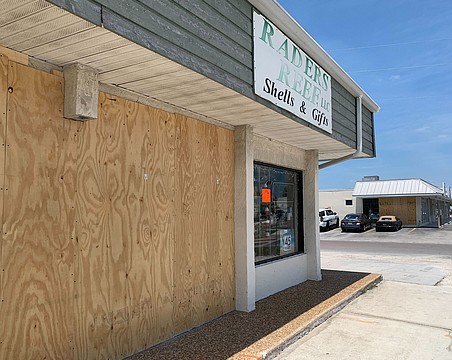JOHN POWER
Principal
Farley White Interests
Boston and Tampa
John Power began his commercial real estate career at the CW Whittier & Bro. brokerage firm in Boston in 1980. In the early 1990s, the firm merged with CB Richard Ellis — today’s CBRE Group. In 1995, Power and business partner Roger "Sam" Altreuter left Whittier to form Farley White Interests — a combination of each of their middle names and their mothers’ maiden names. Today, the firm owns and manages roughly four million square feet of office space in Massachusetts, Tampa and Naples. Farley White first entered Tampa five years ago, when it acquired three buildings in the Hidden River office park. It has since augmented its portfolio with the 20-story Fifth Third Bank Building in downtown Tampa and a medical office building in Naples.
The pandemic has impacted office space tremendously over the past year. What’s your view of the Tampa Bay office market at this juncture?
I think the Tampa Bay office market has actually been very resilient. Florida’s approach to the pandemic has worked for Florida, with its balance between commercial activity and minimizing infection rates. Lately we’ve had a lot of prospective tenant activity, lots of it, as companies resume searches for space and begin to rethink repopulating offices. Tampa is actually the most active part of our portfolio at present. I believe that the work-from-home trend has been overrated. People are tired of being in sweats all day, and more and more companies are talking about, and realizing, the cultural aspects of being together. Businesses are realizing they’re missing a lot of opportunities by not being in the same spot. Amazon’s recent announcement that they will be getting back to their offices I think will foreshadow many such moves. Look, cities have existed for hundreds of thousands of years, and there are good reasons for that. Cities advance human growth.
Citigroup is preparing to leave quite a bit of space in your Hidden River buildings when their lease expires. What are you doing to backfill that space?
CBRE is marketing the space, as it has at Hidden River for a long time. We currently have two different prospects who are from outside the market looking at the space, so we’re optimistic. And frankly — and I know I’m biased here — but I think that space is competitive with any space of like kind in the entire U.S. We think it has a number of advantages over any other suburban Tampa location. It’s in a live-work-play environment with residences around, and our space is in a six-story building built by one of the pre-eminent developers in the country, Crescent. It has views of downtown from its upper floors, and there are no other six-story properties east of downtown, so it’s a more urban scale in a suburban environment, and that’s a win. The space is highly built out, at well over $100 per square foot, and it’s fully furnished. There’s a massive generator there, too, that backs up the entire building right down to desktop computers. It’s 78,000 square feet, all of the space is contiguous and it has five-year-old finishes. Everything is being left in place, it’s all wired. The ease of occupancy, I think, is unparalleled. Citigroup has been very helpful, and we’re going to be the beneficiary of that. It’s one of the benefits of having a great American company as a customer, and frankly, part of the reason we invested in Tampa was because they were there. That gave the city a real credibility shot for us.
Where do you think the Tampa office market will be a year or more from now?
I think the impact of the $1.9 trillion economic shot in the arm that’s just passed isn’t going to really materialize until six, nine, maybe 12 months from now, simply because you can’t run that much money through the economy quickly. I don’t know about the long-term impacts of that legislation, but I can tell you this: Short term, it’s obvious. It’s going to have a big impact. It’s going to be a huge stimulus to the econ and it’s going to bring enormous growth. I think as a result of it, population growth and a lack of new construction that Tampa and St. Pete’s office market is going to do really well.
Where do you see Farley White going forward?
Oh, we want to double in size in Florida over the next couple of years. Our view is Florida is a great market long term. We tend to be pretty conservative, but we’d love to be a more aggressive purchaser going forward. And we think the Tampa Bay region still has a long ways to go. Long term, we think Tampa Bay and Orlando will become a true regional hub, the way Dallas-Fort Worth is considered to be.






